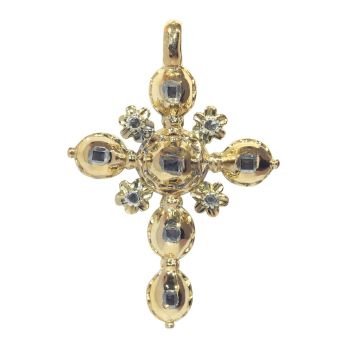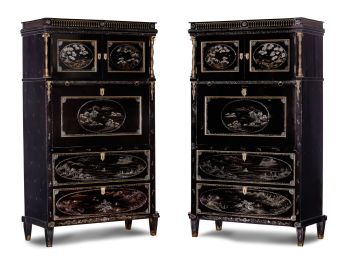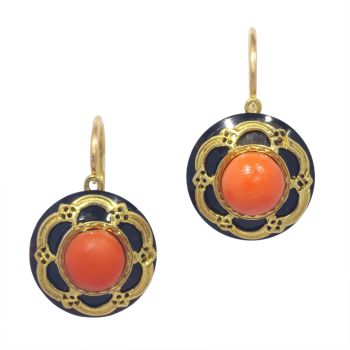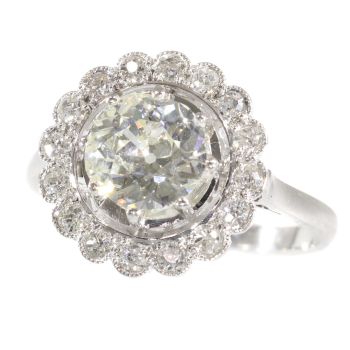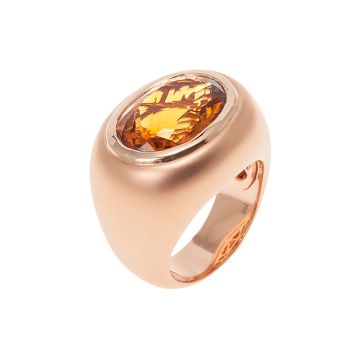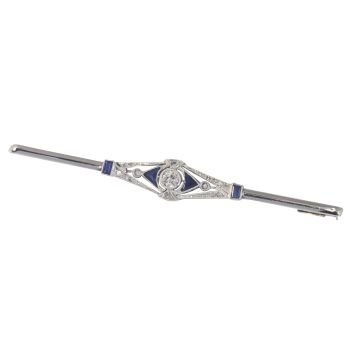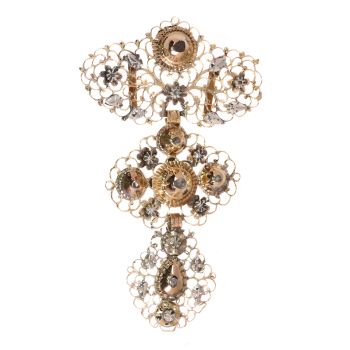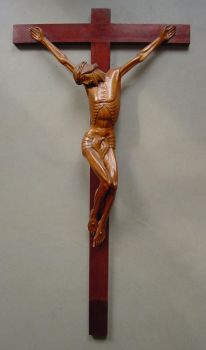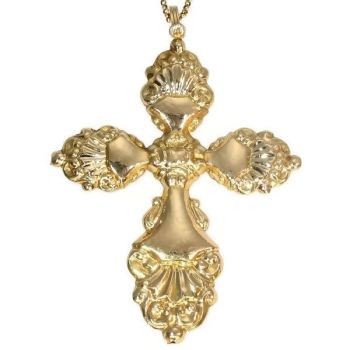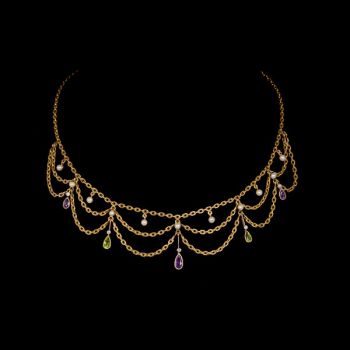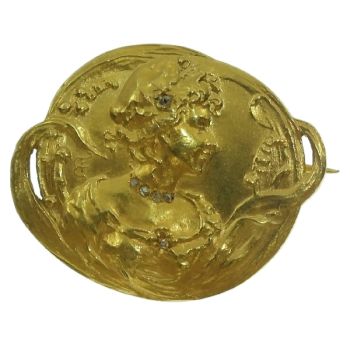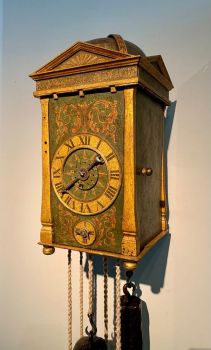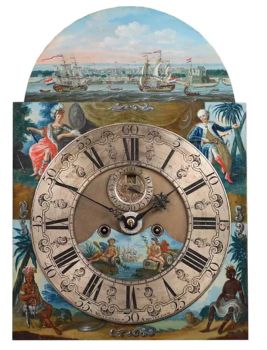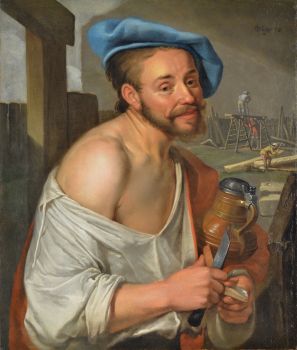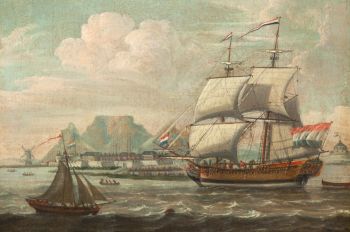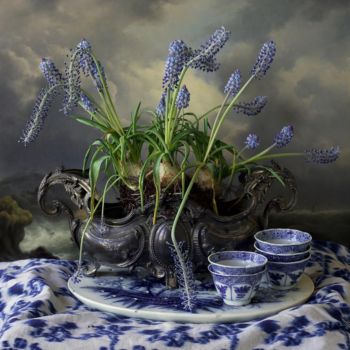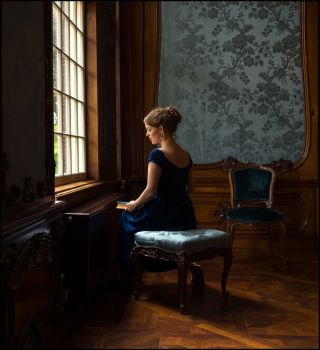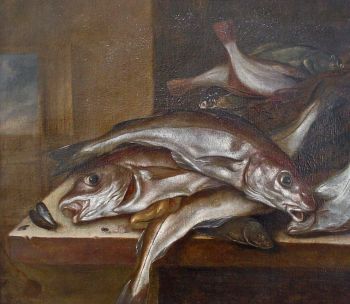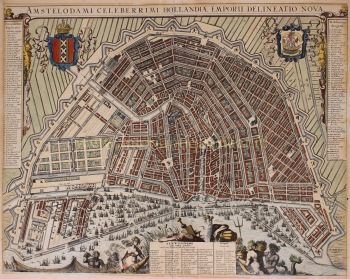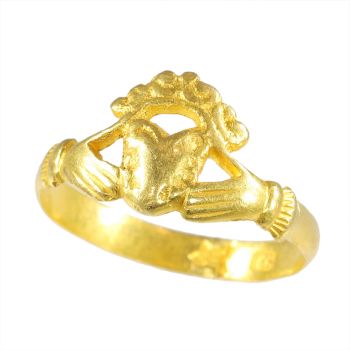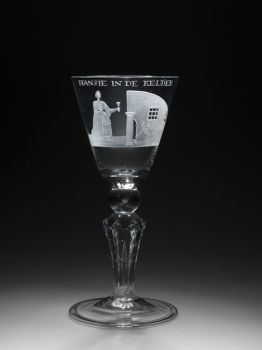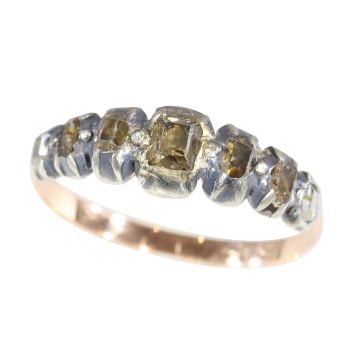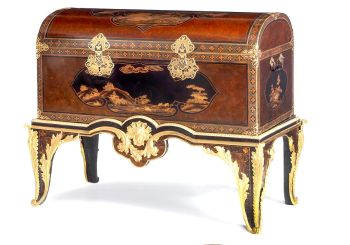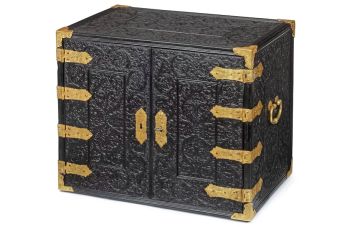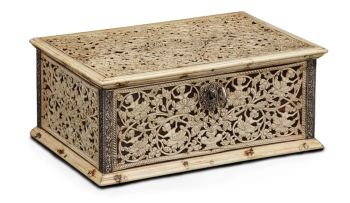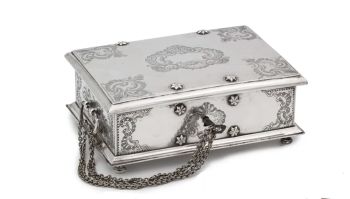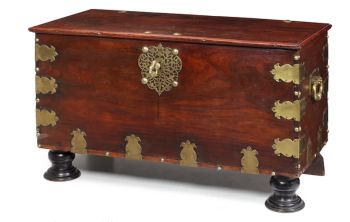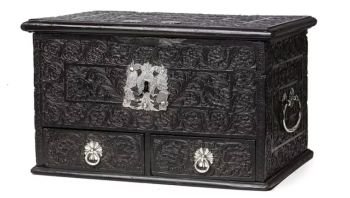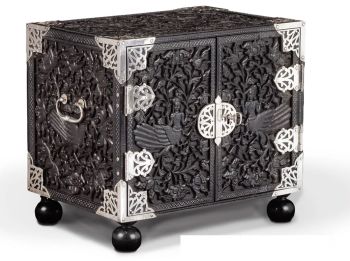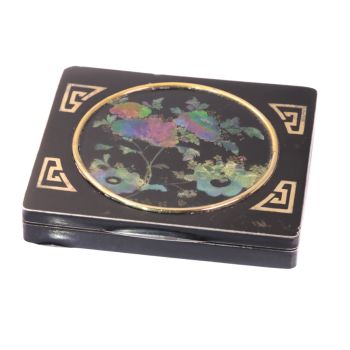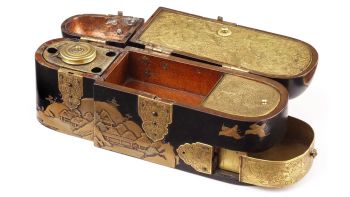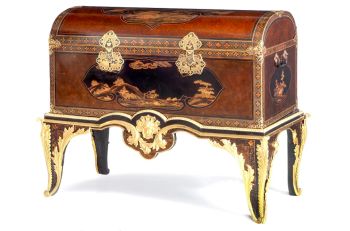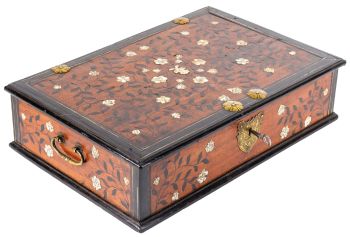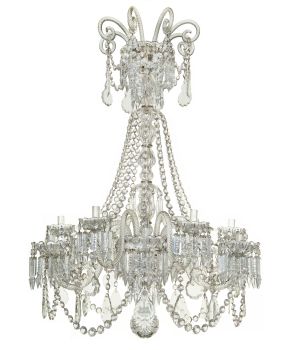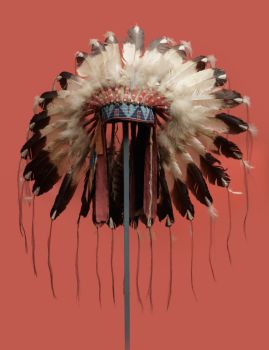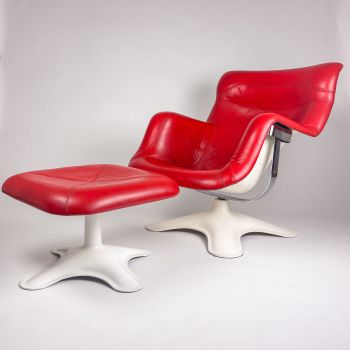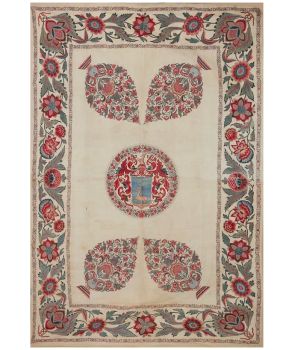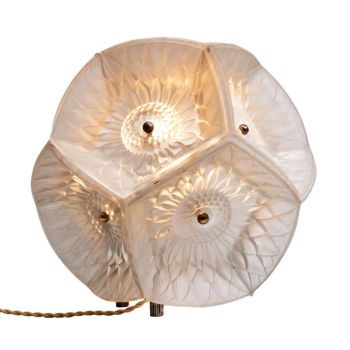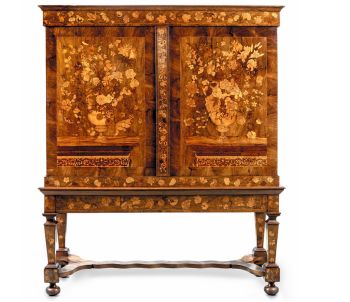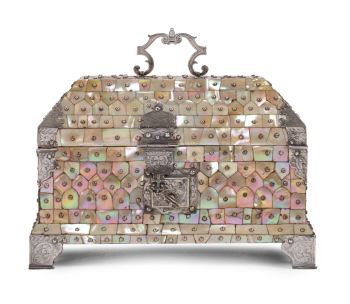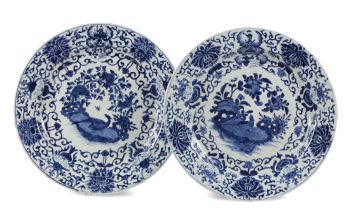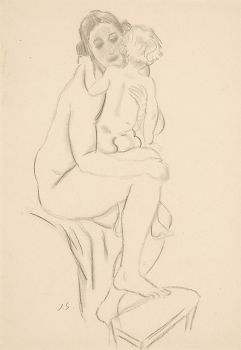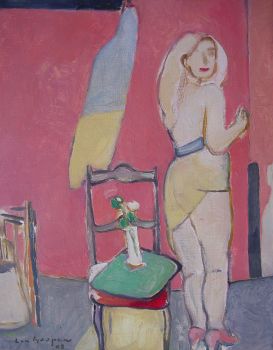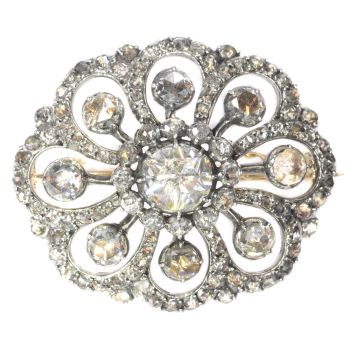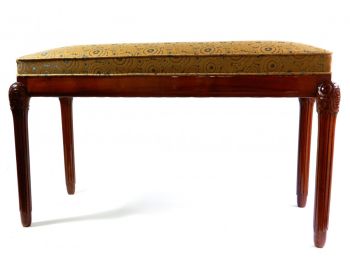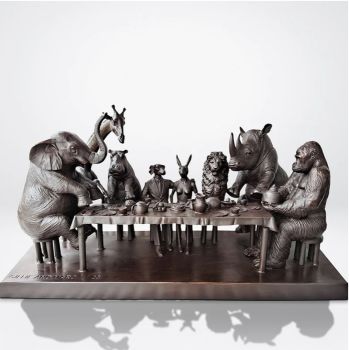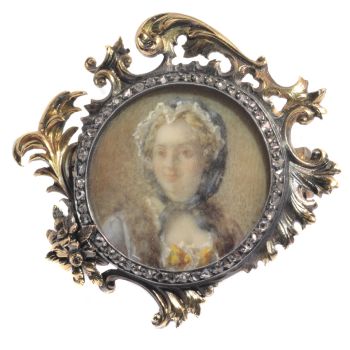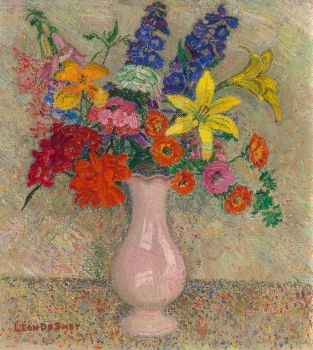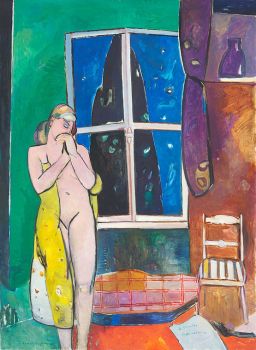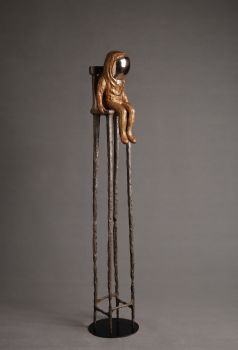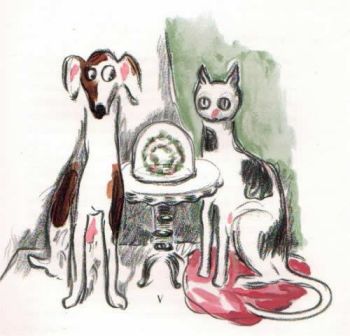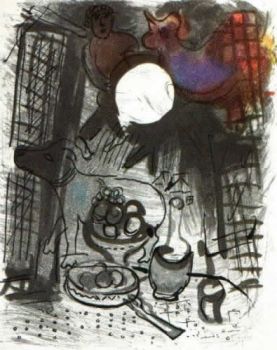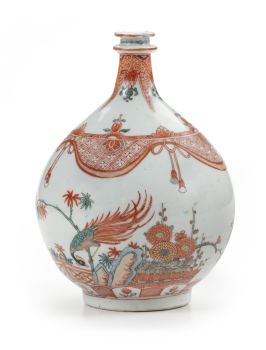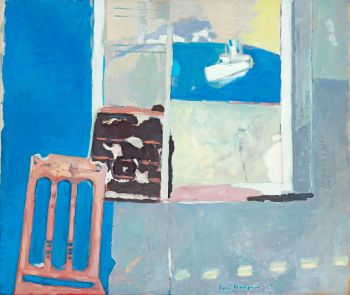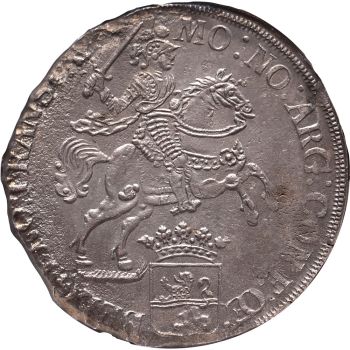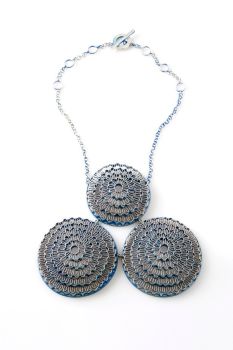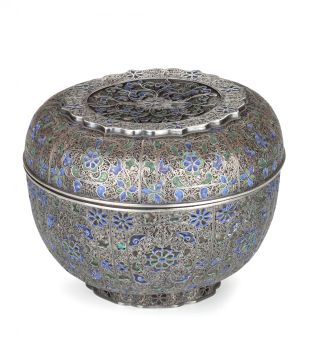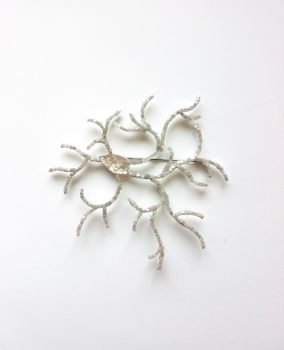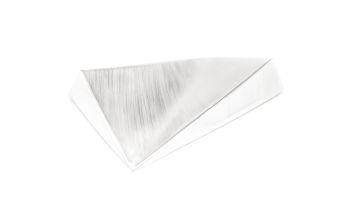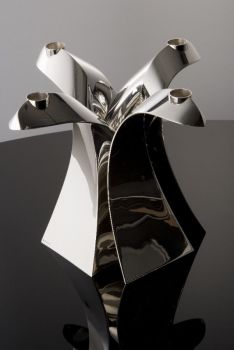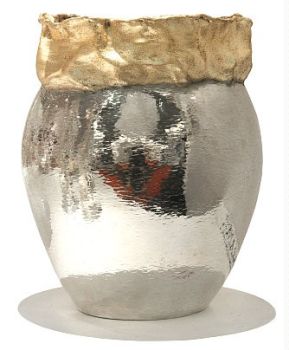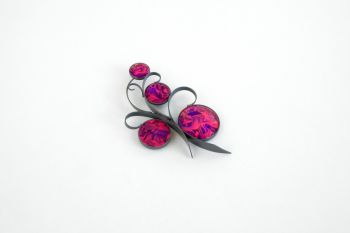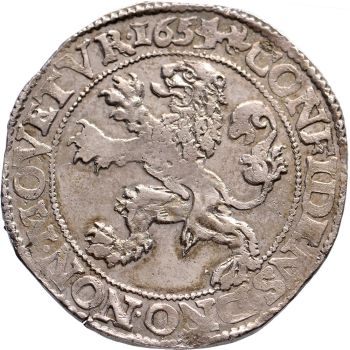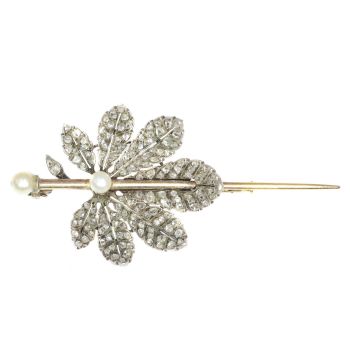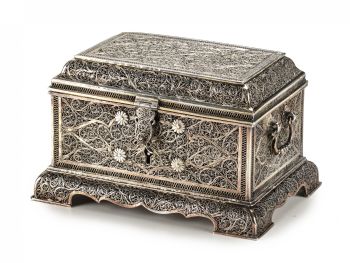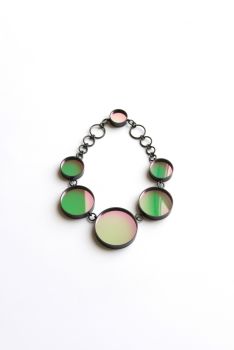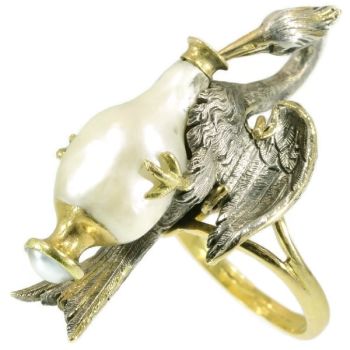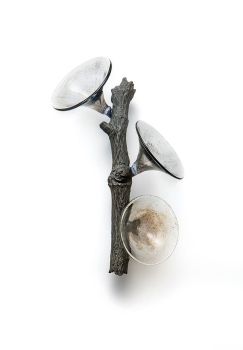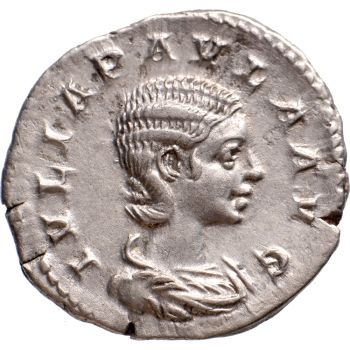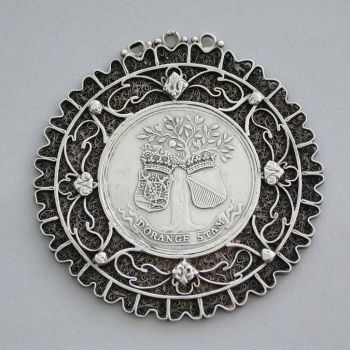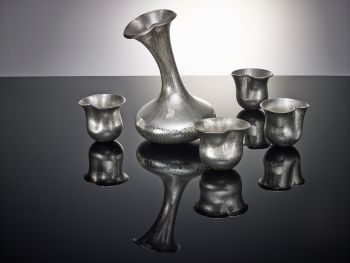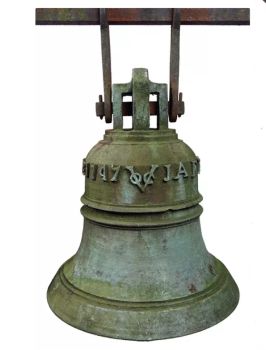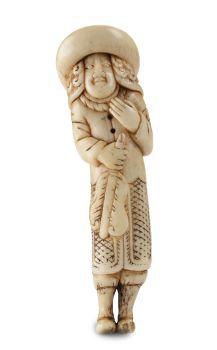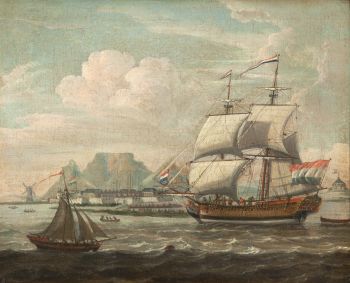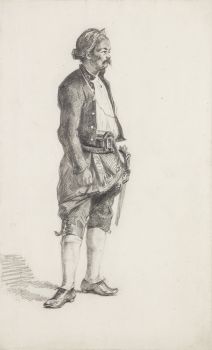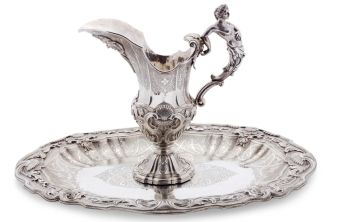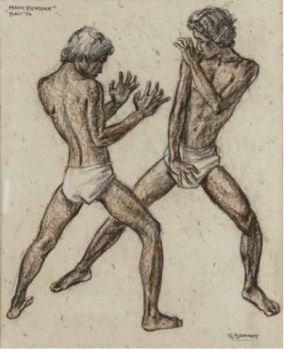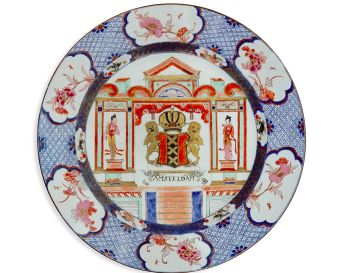A Dutch colonial Indonesian mother-of-pearl inlaid mastic sirih or betel box with silver mounts 1720 - 1730
Artista Desconhecido
Prata
10 ⨯ 26 ⨯ 17 cm
Preço em pedido
Zebregs & Röell - Fine Art - Antiques
- Sobre arteA Dutch colonial Indonesian mother-of-pearl inlaid mastic sirih or betel box with silver mounts
Jakarta (Batavia), circa 1720-1730, the silver hinges marked for Batavia, maker’s mark HS or SH, part of the silver reconstructed
H. 10 x W. 26 x D. 17.5 cm
Before settling down to business in the former Dutch East Indies, sirih had to be offered in the most exquisite boxes, made of gold, silver, inlaid with precious stones, ivory, tortoiseshell, or, as the present one, inlaid with mother-of-pearl. The costliness of one’s sirih box displayed one’s fortunes.
In this manner, only one other sirih box in mother-of-pearl is documented. It is in the collection of Kip-Lee-Kip in Singapore (Peter Lee et al., Port Cities: Multicultural Emporiums of Asia, 1500-1900, Asian Civilizations Museum, Singapore, 2016, p.206, no. 166).
At least one of the previous owners of the casket presented here seemed to have been aware of the importance of this box since it possibly lost part of its silver but was restored with finely engraved openwork late 17th/early 18th century mounts. When observed closely, the box shows several nail holes all over, suggesting closed silver corner and centrepieces, and lock plate.
Researching a large number of sirih caskets, in design related and also for the Peranakan market, as this casket probably is, we asked a highly skilled restorer to design and reconstruct the missing silver mounts – with an astonishing result.
It is unknown who the silversmith HS or SH, active between circa 1714 and circa 1743, is, but he did leave an impressive oeuvre of a very high standard. The Kunstmuseum in The Hague has seven commemorative salvers, a walking stick and a cuspidor with these marks in the collection. For another and so far the latest dated salver by HS or SH, commemorating Bartha Helena van Suchtelen, born in Batavia (Jakarta) in 1710 and deceased there in 1743, see Uit Verre Streken, March 2013, no. 4. - Sobre artista
Pode acontecer que um artista ou criador seja desconhecido.
Algumas obras não devem ser determinadas por quem são feitas ou são feitas por (um grupo de) artesãos. Exemplos são estátuas dos tempos antigos, móveis, espelhos ou assinaturas que não são claras ou legíveis, mas também algumas obras não são assinadas.
Além disso, você pode encontrar a seguinte descrição:
•"Atribuído a …." Na opinião deles, provavelmente uma obra do artista, pelo menos em parte
• “Estúdio de…” ou “Oficina de” Em sua opinião um trabalho executado no estúdio ou oficina do artista, possivelmente sob sua supervisão
• "Círculo de ..." Na opinião deles, uma obra da época do artista mostrando sua influência, intimamente associada ao artista, mas não necessariamente seu aluno
•“Estilo de…” ou “Seguidor de…” Na opinião deles, um trabalho executado no estilo do artista, mas não necessariamente por um aluno; pode ser contemporâneo ou quase contemporâneo
• "Maneira de ..." Na opinião deles, uma obra no estilo do artista, mas de data posterior
•"Depois …." Na opinião deles uma cópia (de qualquer data) de uma obra do artista
• “Assinado…”, “Datado…” ou “Inscrito” Na opinião deles, a obra foi assinada/datada/inscrita pelo artista. A adição de um ponto de interrogação indica um elemento de dúvida
• "Com assinatura ….”, “Com data ….”, “Com inscrição ….” ou “Tem assinatura/data/inscrição” na opinião deles a assinatura/data/inscrição foi adicionada por outra pessoa que não o artista
Você está interessado em comprar esta obra de arte?
Artwork details
Related artworks
Artista Desconhecido
The Stamford Raffles Secretaires.1800 - 1813
Preço em pedidoZebregs & Röell - Fine Art - Antiques
1 - 4 / 12Artista Desconhecido
Een Gotische zuidelijke Nederlanden wandklok1580 - 1590
Preço em pedidoNico van den Assem restauratie
Artista Desconhecido
A Surinam-themed Amsterdam long-case clock1746 - 1756
Preço em pedidoZebregs & Röell - Fine Art - Antiques
 Com curadoria de
Com curadoria deGallerease Magazine
 Com curadoria de
Com curadoria deDanny Bree
1 - 4 / 24Artista Desconhecido
Japanese transition-style lacquer coffer 1640 - 1650
Preço em pedidoZebregs & Röell - Fine Art - Antiques
 Com curadoria de
Com curadoria deDanny Bree
1 - 4 / 24Artista Desconhecido
A Surinam-themed Amsterdam long-case clock1746 - 1756
Preço em pedidoZebregs & Röell - Fine Art - Antiques
 Com curadoria de
Com curadoria deGallerease Magazine
Artista Desconhecido
Japanese transition-style lacquer coffer 1640 - 1650
Preço em pedidoZebregs & Röell - Fine Art - Antiques
1 - 4 / 24- 1 - 4 / 24
Artista Desconhecido
The bell of the VOC fortress in Jaffna, Sri Lanka1747
Preço em pedidoZebregs & Röell - Fine Art - Antiques
 Com curadoria de
Com curadoria deDanny Bree
Artista Desconhecido
A large wall map of Asia by Nicolas de Fer 1647 - 1720
Preço em pedidoZebregs & Röell - Fine Art - Antiques
Dutch School
Chegada de um índio oriental holandês na Baía da Mesa18th century
Preço em pedidoZebregs & Röell - Fine Art - Antiques
1 - 4 / 12




